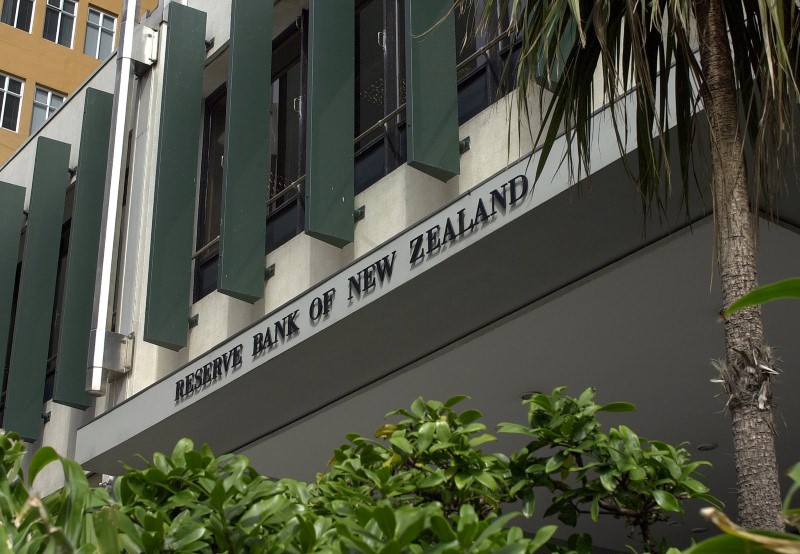
© Reuters.
NZD/USD
-1.11%
Add to/Remove from Watchlist
Add to Watchlist
Add Position
Position added successfully to:
Please name your holdings portfolio
Type:
BUY
SELL
Date:
Amount:
Price
Point Value:
Leverage:
1:1
1:10
1:25
1:50
1:100
1:200
1:400
1:500
1:1000
Commission:
Create New Watchlist
Create
Create a new holdings portfolio
Add
Create
+ Add another position
Close
Investing.com– The Reserve Bank of New Zealand kept interest rates unchanged as widely expected on Wednesday, and said that it will continue to keep monetary conditions tight in the near-term to further bring down inflation.
The RBNZ kept the official cash rate at 5.5%- its fifth straight meeting of keeping interest rates steady. While the bank had warned of a potential increase in rates over the near-term, markets widely expected no changes in its February meeting.
While the bank noted that overall risks to the outlook for inflation had turned more positive in recent months, it still saw little chances of inflation coming within its 1% to 3% annual target range in the near-term.
This notion is expected to keep rates higher for longer in New Zealand.
The RBNZ said it expects annual consumer price index inflation to fall within its annual target range by the third quarter of 2024.
“These ongoing restrictive monetary policy settings are necessary to guard against the risk of a rise in inflation expectations, while avoiding unnecessary instability in output, employment, interest rates and the exchange rate,” the RBNZ said in a statement.
The central bank also noted that high interest rates, sticky inflation and weak offshore demand were exerting continued pressure on the New Zealand economy, which was also factoring into cooler inflationary conditions.
The New Zealand dollar slid 0.8% after the RBNZ’s decision, given that it struck a less hawkish chord than markets were expecting. The RBNZ did not flag any further increases in interest rates on Wednesday.
The RBNZ had hiked its official cash rate by a cumulative 525 basis points between August 2021 and May 2023, being one of the first major central banks to act against a post-COVID spike in inflation.
But a series of major cyclones in early-2023 somewhat disrupted its plans to curb inflation, as price pressures shot up in the wake of rebuilding efforts after the disasters.
Source: Investing.com




























